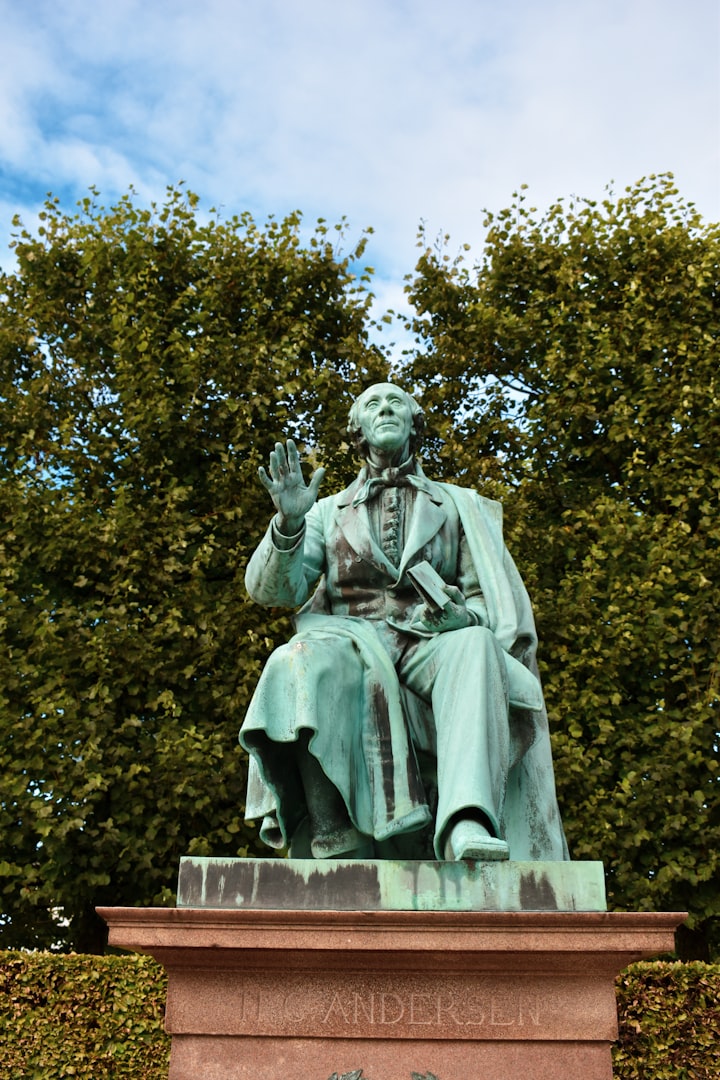
Hans Christian Andersen (1805–1875) is world famous for his fairy tales, including “The Princess and the Pea”, “The Little Mermaid”, “The Emperor’s New Clothes”, “The Ugly Duckling”, “The Match Girl”, “The Tin Soldier”, “The snow queen”.
Not everyone knows that he too was a tireless traveler and during his many trips he wrote many travel diaries.
In the Royal Library of Copenhagen it is possible to consult the pages concerning his passage in the city of Livorno.
My Danish friend Vibeke Worm traced for me the pages dedicated to Andersen’s stay in the city of Livorno and translated them from the nineteenth-century Danish into English. The style is fast, darting, incisive.
1833 from the diary
6 October. We hired a cabman and happily drove the six miles to Livorno. We met several hunters and came across a beautiful oak forest and rows of orange trees.
The Apennines had a couple of high peaks, the rest of the area was flat, and in Livorno it was all a bit boring. A dirty city, with a beautiful harbor with green water. We saw the coasts of Corsica and Elba, a steamer came from Genoa, we talked to two Swedes and had an ass for Cicero, who took us 4 francs and showed us nothing. He told us things like: “There should be a Turkish merchant, but his shop is closed, there is a church with a beautiful painting but the painting is missing.”
The cathedral is nothing special, a nice ceiling, but it’s all dirty. The Greek church was closed. The English cemetery outside the city was all Carrara marble tombs, we also found a couple of Swedish burials.
On the street we saw many Greeks. The synagogue, which was supposed to be one of the most beautiful and richest in Europe, made a bad impression on me. People went up a staircase in the church, which looks like the Stock Exchange, everyone had hats and gossiped about the others. Filthy Jewish children stood upright on chairs and a Rabbi, on a sort of pulpit, laughed and joked with the elderly. To advance, Tappernaklet elbowed his way as if they were giving out tickets to the theater, no one thought of devotion. Above us, in the gallery, sat the women hidden by a large grid, here they had to be treated as in Spain and they were very shy.
At the port there is a marble statue of Ferdinand I with 4 bronze slaves chained to the statue, one, a black man, had a very melancholy look, it was horrible to see and it would be an honor to help him!
Our window overlooked the sea, the sun was pleasant, down behind the lighthouse, it was like a ship on the horizon. The hills were gray-blue, and strange torn clouds hung in the sky like golden spears in the sky. Livorno is ugly, flat and dirty, but the sky, the sea and the beautiful hills are a frame that makes painting worthy, it could also be pleasant to stay here for a while.
People: especially women walk the streets in such quantities that they look like a procession, I have seen Turks with characteristic heads and handsome Greek boys. A Spaniard, with black eyes of fire and a thin veil, passed me by, she was beautiful!
On the floor we have bright carpets, oriental sofas, but it takes from 5 to 9 francs to have lunch, we went to a restaurant and ate with two francs.
It is not known whether the clear blue sky, the blue sea, or the cerulean mountains are more beautiful. It is the same color in different expressions, it is like love pronounced in three different languages. (Today our coachman sang an opera aria while he was leading us off the road.)
Monday 7 October.
This morning I woke up to the noise of chains, they were chained two by two, one red and one yellow. […]
We went out onto the harbor. The pier is covered with earth-colored stone blocks. We were in Pisa for lunch. I went to the tower and the church. The streets were like a morgue, I ducked into alleys so narrow and silent that anxiety took hold, I finally found myself in a green space, there was a colossal marble statue of Grand Duke Leopold I holding a scepter gold.[…]
Tuesday 8th October.
From Pisa to Florence. A really good road, they drove like crazy, we arrived in Florence in eight hours. There was little water in the Arno …
About the Creator
Patrizia Poli
Patrizia Poli was born in Livorno in 1961. Writer of fiction and blogger, she published seven novels.






Comments
There are no comments for this story
Be the first to respond and start the conversation.